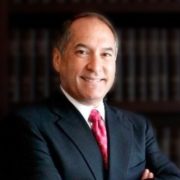PRESIDENT Donald Trump’s new, stricter public charge rules seem to go back and forth, like a tennis or ping-pong match. It becomes very confusing for applicants as to which public charge guidelines they should follow: the ones that have been in existence since 1999, or the new ones Pres. Trump just implemented which had been subject to a court injunction? Here is the latest news and background:
On July 29, 2020 a U.S. District Court issued a nationwide injunction, prohibiting USCIS from enforcing, applying, implementing, or treating as effective, Pres. Trump’s new public charge rules, as long as there is a national health emergency caused by the COVID-19 outbreak.
USCIS then announced on its website it would abide by this injunction, and that as long as the court’s decision is in effect, “USCIS will apply the 1999 public charge guidance that was in place before the public charge rule was implemented on February 24, 2020 to the adjudication of any application for adjustment of status on or after July 29, 2020.”
However, on August 12, 2020, the Second Circuit Court of Appeals limited the scope of that injunction to only Connecticut, New York, and Vermont. That is because the District Court that issued the injunction only had jurisdiction over Connecticut, New York, and Vermont. Therefore, USCIS may now implement its new public charge rule in all other states within the U.S. except in the three states mentioned, thereby requiring applicants in the other states to submit the financial declaration (Form I-944).
Interestingly, as of August 19, 2020, USCIS has not updated its injunction page, nor added back the Form I-944 to its forms page, nor provided guidance on how it will now implement these different public charge standards within the U.S.
People who are outside Connecticut, New York and Vermont may need to wait for guidance from USCIS on how to proceed before filing applications, unless it is critical a person files the petition or application because of issues of maintaining status, etc.
I would advise people to be prepared to meet the requirements of the Form I-944, and consult an attorney to evaluate your case in reference to those new requirements, just in case they are brought back or if you have questions or are confused about eligibility or public charge requirements.
* * *
Michael J. Gurfinkel has been an attorney for over 35 years and is licensed, and an active member of the State Bars of California and New York. All immigration services are provided by, or under the supervision of, an active member of the State Bar of California. Each case is different, and results may depend on the facts of the particular case. The information and opinions contained herein (including testimonials, “Success Stories,” endorsements and re-enactments) are of a general nature, and are not intended to apply to any particular case, and do not constitute a prediction, warranty, guarantee or legal advice regarding the outcome of your legal matter. No attorney-client relationship is, or shall be, established with any reader.
WEBSITE: www.gurfinkel.com
Follow us on Facebook.com/GurfinkelLaw, Twitter @GurfinkelLaw and YouTube: US Immigration TV
Call Toll free to schedule a consultation for anywhere in the US:
1-866-487-3465
(866) – GURFINKEL
Four offices to serve you:
LOS ANGELES ∙ SAN FRANCISCO ∙ NEW YORK ∙ PHILIPPINES







